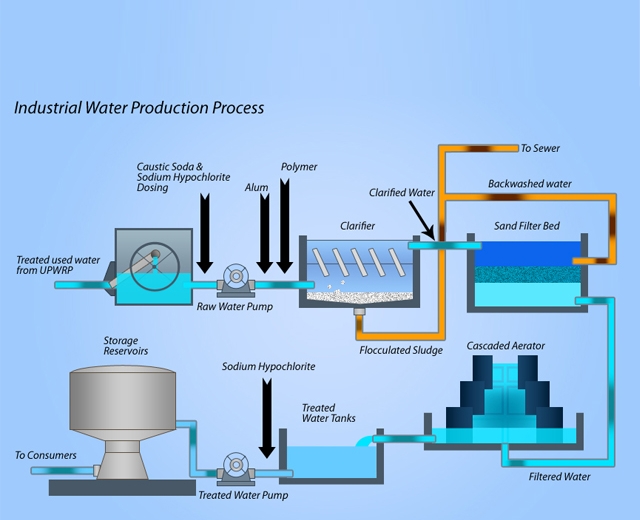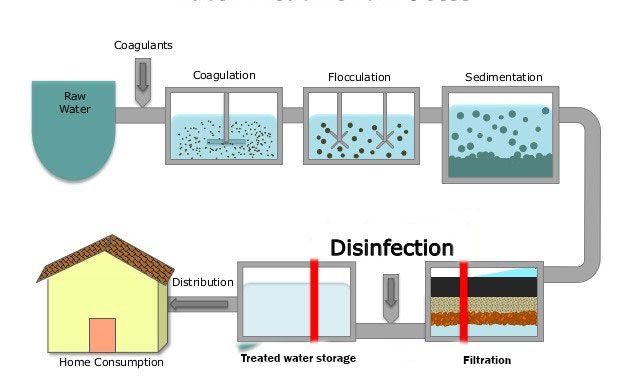Water Purification System Options for each Budget Plan and Home Dimension
Wiki Article
Why a Water Filtration System Is Crucial for Clean, Safe Water
Access to clean, risk-free water is a fundamental human right and a foundation of public health and wellness. The visibility of damaging pollutants such as microorganisms, heavy steels, and chemical toxins in our water supply elevates serious issues regarding health and wellness and wellness. A water purification system stands as a crucial solution to reduce these dangers, ensuring that people and neighborhoods can access secure alcohol consumption water. Comprehending the intricacies of these systems and their various approaches is essential, particularly as we consider the implications for health outcomes and ecological sustainability in our day-to-days live.Significance of Tidy Water
Access to clean water is an essential necessity for human wellness and well-being. It is vital for sustaining life, supporting hygiene, and keeping general public health. Water Purification System. The availability of safe alcohol consumption water significantly lowers the risk of waterborne diseases, which pose a substantial hazard to communities worldwide. Infected water can bring about major wellness concerns, including gastrointestinal illnesses, cholera, and dysentery, particularly in vulnerable populaces such as youngsters and the elderly.Additionally, tidy water is crucial for sanitation and hygiene techniques, which are crucial in preventing the spread of contagious illness. Ample water supply sustains appropriate sanitation centers, advertising a healthier setting. Furthermore, access to risk-free water affects socioeconomic variables, as it enables neighborhoods to participate in industrial and agricultural activities, eventually adding to financial development.
In numerous areas, the lack of tidy water intensifies poverty and inequality, further impeding development toward lasting development goals. Ensuring access to clean water is not only a public wellness crucial yet likewise a keystone for social equity and financial development. Efforts to improve water quality and infrastructure have far-ranging benefits, promoting much healthier neighborhoods and improving lifestyle.

Common Contaminants in Water
Making sure the accessibility of clean water is undermined by various contaminants that can jeopardize its safety and quality. The presence of microorganisms, such as microorganisms, viruses, and bloodsuckers, presents significant health threats, especially in locations doing not have ample sanitation. These microbes can lead to waterborne illness, leading to extreme disease or perhaps death.Chemical impurities additionally present a critical problem. Heavy metals, including arsenic, mercury, and lead, commonly get in water supplies through commercial discharges or corroded plumbing. These substances can build up in the body with time, resulting in long-term health and wellness problems such as neurological damages and developmental disorders.
In addition, farming drainage introduces chemicals and plant foods right into water supply, which can interfere with ecosystems and negatively influence human wellness. Nitrates, frequently discovered in fertilizers, can create serious problems like methemoglobinemia, especially in infants.
Benefits of Water Filtration Equipments
Identifying the essential requirement for secure drinking water, water filtration systems use a myriad of benefits that enhance public wellness and ecological sustainability. Mostly, these systems successfully remove hazardous pollutants, consisting of germs, viruses, heavy metals, and chemicals, ensuring that the water taken in is without microorganisms and pollutants. This decrease in pollutants substantially decreases the threat of waterborne diseases, promoting general neighborhood health.In addition to wellness advantages, water purification systems add to ecological sustainability by decreasing reliance on mineral water, which typically creates too much plastic waste. By utilizing a filtration system, families can reduce their carbon footprint learn this here now and add to an extra sustainable environment. Moreover, these systems can enhance the preference and odor of water, making it more tasty for everyday consumption.

Different Sorts Of Purification Techniques

One usual technique is reverse osmosis, which makes use of a semi-permeable membrane to separate water from liquified impurities and solids. This procedure efficiently lowers pollutants, including heavy steels and chemicals. Another commonly used technique is ultraviolet (UV) disinfection, which utilizes UV light to counteract viruses and germs, rendering them harmless without using chemicals.
Activated carbon filtration is another preferred approach, making use of carbon to adsorb organic compounds, chlorine, and explanation unpleasant odors, improving taste and smell high quality. Distillation, a procedure that entails boiling water and condensing the heavy steam, successfully eliminates pollutants and minerals however might call for even more energy contrasted to various other approaches.
Ion exchange is usually used to soften water by changing calcium and magnesium ions with salt or potassium ions. Each approach has its constraints and advantages, making it vital to understand their functionalities and efficiency in addressing specific water high quality problems - Water Purification System. Eventually, picking the ideal purification approach is important for guaranteeing tidy and secure drinking water
Selecting the Right System
Choosing a suitable water purification system requires mindful factor to consider of different aspects, including the specific impurities present in the water supply, the quantity of water needed, and the wanted filtration approach. Initially, it is vital to conduct a water high quality examination to recognize pollutants such as bacteria, heavy steels, or chemical contaminants. This info will certainly direct you in choosing a system that properly targets those particular contaminations.
Following, analyze your family's everyday water usage to identify the system's capability. Solutions are readily available in various dimensions, from point-of-use filters for alcohol consumption water to whole-house systems that detoxify all water entering your home.
Furthermore, think about the purification technique that best fits your requirements. Reverse osmosis is highly efficient for getting rid of a broad array of contaminants, while UV filtration is exceptional for eliminating bacteria.
Conclusion
Finally, the implementation of water filtration systems is critical for making certain accessibility to tidy and safe water. These systems successfully eliminate dangerous impurities, thus lowering the risk of waterborne diseases and boosting public health. They contribute to ecological sustainability by decreasing reliance on bottled water. By recognizing the relevance of tidy water and the advantages of numerous filtration methods, communities can make informed decisions to guard their health and advertise socioeconomic stability.Acknowledging the essential requirement for safe drinking water, water purification systems use a myriad of advantages that boost public wellness and ecological sustainability.In addition to health benefits, water purification systems contribute to ecological sustainability by reducing dependence on this contact form bottled water, which commonly generates excessive plastic waste. Inevitably, the adoption of water purification systems is a proactive action toward making certain tidy, safe water for future generations while safeguarding public health and wellness and the setting.
Picking a suitable water filtration system requires careful consideration of various factors, including the details impurities existing in the water supply, the volume of water required, and the wanted filtration method.In verdict, the implementation of water purification systems is crucial for making sure access to clean and safe water.
Report this wiki page